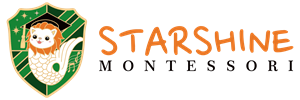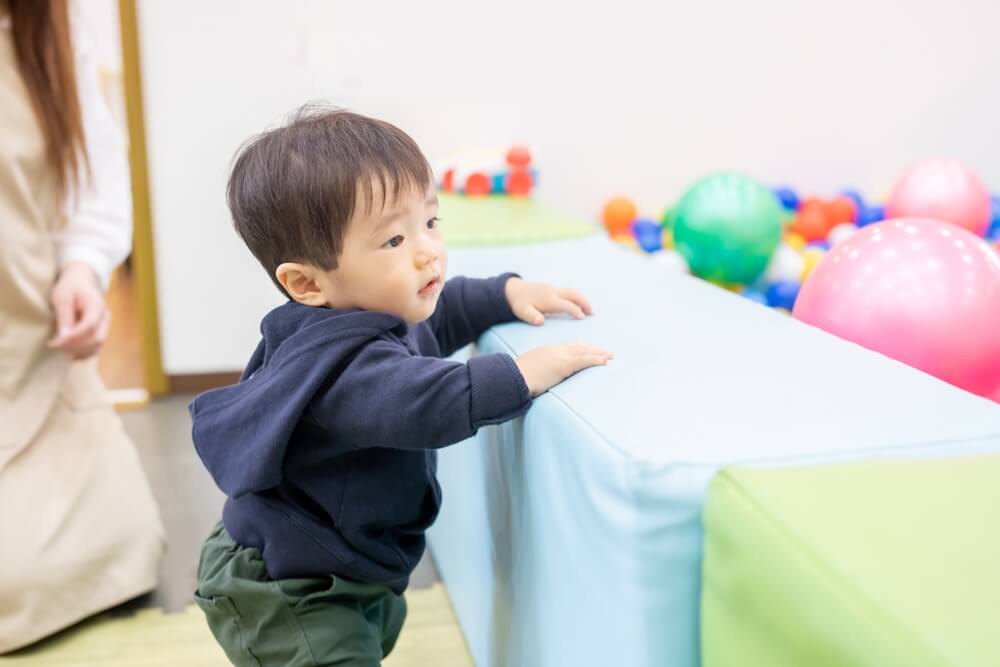Choosing the right infant care is one of the most important decisions parents face in Singapore. With various options available, parents must carefully consider what is best for their child’s growth and development. Among the different approaches, Montessori-based infant care has become increasingly popular for its child-centered philosophy and emphasis on holistic development. This article will delve into what makes Montessori stand out in the context of Singapore’s infant care landscape.
Introduction
Overview of Infant Care in Singapore
Infant care in Singapore has seen significant growth in recent years as more families seek high-quality early education for their children. With the nation’s emphasis on education and development, there has been a rising demand for infant care centers that offer not just supervision but structured, enriching experiences for young children. Parents are increasingly aware of the long-term benefits of early childhood education, making the choice of infant care an important decision that impacts a child’s cognitive, emotional, and social development.
The Importance of Choosing the Right Infant Care
Selecting the right infant care can shape a child’s early experiences, fostering emotional security, learning opportunities, and social interaction. The right environment provides not only care but also stimulation essential for a child’s early development. Parents are looking for facilities that align with their values, offer a safe environment, and provide a foundation for future learning.
Brief Introduction to Montessori Education
The Montessori method, developed by Dr. Maria Montessori in the early 1900s, emphasizes child-led learning where children explore, discover, and learn at their own pace. Montessori-based infant care promotes independence, concentration, and respect for a child’s natural psychological development, making it a holistic option that many parents prefer. Its approach is centered around fostering a love for learning through self-directed activity, hands-on learning, and collaborative play.
Understanding Infant Care Options in Singapore
Types of Infant Care Available
In Singapore, infant care options include daycare centers, nannies, and preschools that cater to infants from 2 to 18 months old. Some infant care centers focus on structured, curriculum-based learning, while others are more play-focused. Montessori-based centers like Starshine Montessori provide a unique approach that integrates both learning and play, offering an environment tailored to the child’s developmental needs.
Key Features Parents Look for in Infant Care
Parents typically seek several key features when choosing infant care, such as:
- A safe and clean environment
- Qualified, caring educators
- Low child-to-teacher ratios
- Developmentally appropriate activities
- Clear communication with parents
These are all crucial factors that influence a child’s comfort and growth in an infant care setting.
Current Trends in Infant Care and Education
Modern infant care in Singapore is becoming more inclusive, integrating approaches that cater to a child’s emotional, physical, and cognitive needs. Montessori education aligns well with this trend, with its emphasis on fostering independence, self-motivation, and curiosity from a young age. The growing demand for bilingual education, including Mandarin immersion, is another trend Montessori centers often support, enhancing both language skills and cultural understanding.
What is Montessori-Based Infant Care?
Origins and Philosophy of Montessori
Montessori education was founded by Dr. Maria Montessori, whose research emphasized the importance of individualized learning. She believed that education should focus on the whole child—intellectually, emotionally, socially, and physically. In Montessori-based infant care, these principles are applied to even the youngest children, encouraging natural curiosity and learning through exploration.
Montessori Principles Applied to Infant Care
Montessori infant care creates a prepared environment that allows infants to move freely, engage with sensory-rich materials, and explore the world at their own pace. Activities are designed to promote motor skills, language development, and cognitive growth in a way that respects each child’s unique developmental timeline. The role of play in enhancing cognitive development is emphasized in Montessori settings, making learning an enjoyable and natural process for infants.
Key Differences Between Montessori and Traditional Childcare Approaches
Montessori-based infant care differs from traditional daycare in several ways:
- Child-Led Learning: Montessori allows children to choose activities that interest them, fostering a sense of independence.
- Prepared Environment: The environment is carefully designed to be safe and stimulating, allowing for both physical and intellectual development.
- Focus on Developmental Stages: Rather than a one-size-fits-all curriculum, Montessori adapts to each child’s developmental stage.
Benefits of Montessori Infant Care
Focus on Holistic Child Development
Montessori education nurtures every aspect of a child’s development—intellectual, physical, emotional, and social. It focuses on fostering an environment where children feel respected, valued, and supported, allowing for well-rounded development. This holistic approach ensures that children grow into confident, capable individuals.
Encouraging Independence from a Young Age
One of the primary goals of Montessori is to foster independence. From a young age, children are encouraged to make choices and engage in self-care activities, such as feeding themselves. This focus on independence helps children build confidence and self-sufficiency. Parents can read more about how the Montessori method fosters independence and prepares children for real-world success.
Child-Led Learning: Why It Works for Infants
In a Montessori environment, infants engage in child-led learning, which allows them to explore their interests and curiosities at their own pace. This approach helps children develop a love for learning, as they are not forced into rigid structures but can follow their natural developmental instincts. More on this concept can be explored in Montessori’s inquiry-based learning.
Developing Social and Emotional Skills in a Montessori Environment
In addition to intellectual development, Montessori infant care focuses heavily on social and emotional skills. Children are taught respect for others, empathy, and how to manage their emotions. The relationships children form with their educators in these environments are pivotal to their success, as positive teacher-child relationships foster security and emotional intelligence.
Cognitive and Sensory Development Through Montessori Activities
Montessori’s use of sensory-rich materials helps develop an infant’s cognitive abilities. Children are given opportunities to explore textures, shapes, and sounds, which aids in brain development. Montessori also integrates everyday practical life skills into its curriculum, allowing children to experience real-world learning from a young age. For more details on how Montessori supports cognitive development, you can check out the article on Montessori activities for cognitive growth.
How Montessori Infant Care Compares to Other Methods
Montessori vs. Play-based Learning
While both Montessori and play-based learning emphasize exploration, Montessori is more structured in its approach. Montessori materials are designed with specific learning outcomes in mind, whereas play-based learning is often more open-ended. The benefits of play in cognitive development are, however, an integral part of the Montessori method, as it incorporates guided play with educational intent.
Montessori vs. Academic-Focused Care
Academic-focused infant care often prioritizes formal learning and the early introduction of reading, writing, and mathematics. In contrast, Montessori allows children to learn at their own pace, without pressure to meet specific academic milestones. This method can lead to a deeper, more meaningful understanding of concepts over time.
Montessori vs. Traditional Daycare
Traditional daycare focuses more on basic care and supervision, with structured routines for feeding, napping, and playtime. In contrast, Montessori infant care integrates developmental activities into the daily schedule, ensuring that every moment spent in the care setting is contributing to the child’s growth. This focus on development is one of the reasons Montessori stands out as a preferred option for parents seeking more than just childcare.
Why Choose Starshine Montessori for Infant Care in Singapore?
Overview of Starshine Montessori’s Programmes
Starshine Montessori offers a range of infant and toddler programmes that are designed to nurture the child’s full potential. With a curriculum that combines Montessori principles with local educational needs, Starshine provides a balanced approach to early childhood development.
Trained Montessori Educators and Their Role
The educators at Starshine Montessori are trained to apply Montessori principles in a way that respects each child’s individual growth. These educators serve as guides, helping infants and toddlers engage with the environment and providing the right level of support when needed.
The Safe and Nurturing Environment at Starshine
At Starshine, the prepared environment is key. The classrooms are designed to be accessible, safe, and filled with materials that promote exploration and learning. This environment fosters not just intellectual growth but also emotional well-being.
What to Look for When Selecting Montessori Infant Care in Singapore
Accreditation and Teacher Qualifications
When selecting a Montessori programme, parents should check for accreditation and ensure that teachers are properly trained in the Montessori method. Starshine Montessori provides transparency on teacher qualifications and ensures that its educators are well-versed in child development.
Class Size and Student-to-Teacher Ratio
A low student-to-teacher ratio is essential for personalized attention. At Starshine Montessori, the small class sizes ensure that each child receives the care and guidance they need to thrive.
Facilities and Learning Materials
The quality of the environment is a crucial aspect of Montessori education. Look for centers with well-prepared environments that include a variety of sensory and educational materials. Starshine Montessori excels in creating environments that encourage learning through exploration.
Alignment with Your Parenting Philosophy
Choosing a center that aligns with your parenting philosophy is critical. Montessori encourages independence and respects the child’s natural developmental path, which can complement a variety of parenting styles.
The Future of Infant Care in Singapore: Montessori Leading the Way
How Montessori is Shaping the Future of Early Childhood Education
Montessori’s holistic, child-led approach is becoming increasingly recognised for its effectiveness in early childhood education. As more parents seek meaningful learning experiences for their children, Montessori is likely to play a significant role in shaping Singapore’s educational landscape.
Growing Popularity of Montessori in Singapore
The Montessori method has gained popularity in Singapore due to its focus on individual learning styles and its success in fostering both academic and personal growth. With more centers adopting Montessori principles, the future of early childhood education looks bright.
Potential Challenges and Solutions in Expanding Montessori Infant Care
Despite its benefits, Montessori education can face challenges such as maintaining trained staff and ensuring that parents understand the method’s long-term benefits. However, centers like Starshine Montessori are leading the way by providing clear communication and resources to parents.
Conclusion
Summary of Key Points
Montessori-based infant care in Singapore offers a unique and effective approach to early childhood education. Its focus on independence, holistic development, and child-led learning sets it apart from traditional childcare methods.
Final Thoughts on Montessori-Based Infant Care
Montessori education fosters a love for learning and respect for a child’s natural developmental pace. This method is a proven choice for parents who seek more than just basic care for their infants.
Encouraging Parents to Explore Montessori Options
If you’re considering infant care in Singapore, Starshine Montessori offers an excellent program that aligns with the values and goals of the Montessori method. Explore how Montessori can support your child’s growth and development from the earliest stages of life.
Follow us on social media to stay updated on our latest updates and happenings:







Comments are closed